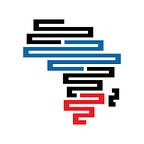Behind InfoNile’s exposé on Covid-19’s effect on conservation
InfoNile’s investigation reveals a spike in poaching during the pandemic
With movement restrictions implemented across most countries during the Covid-19 pandemic, many assumed poaching would decrease. However, an investigation by InfoNile revealed quite the opposite. In Kenya, for instance, there were improvements in wildlife conservation before the Covid-19 outbreak. Surprisingly, the low risk and high reward business of poaching and wildlife trafficking increased as the pandemic raged.
The effects of low tourism, budget cuts and restrictions on movement added to the already dire situation for conservation, the report, which was supported by Code for Africa (CfA), revealed. Kenya, Uganda and Tanzania all had their tourism income slashed by more than half in 2020 and people working in the industry were hard-hit.
In Uganda, for instance, about three-quarters of jobs were lost in the tourism sector as establishments were forced to cut their staff from an average of 18 people to just two by June 2020.
To tackle what could become a devastating trend considering trafficking doubled in December 2020, governments in both Uganda and Tanzania introduced new wildlife protection plans. In the former, a new ranger unit set out to boost the fight against poachers in Queen Elizabeth National Park. For the latter, a fundraising campaign was launched for its de-snaring campaign, where groups scour Serengeti National Park for wire snares.
Revealing the true extent of damage to conservation exacerbated by the pandemic needed clear and contextualised data to tell the story. CfA’s Knowledge team assisted InfoNile with data visualisation.
Code for Africa’s Sakina Salem, Dataviz and Infographics Design Fellow, and Tricia Govindasamy, Senior Product Manager shared the following insights on how they tackled the project.
How did CfA’s knowledge team collaborate on the project?
The Knowledge team’s major contribution towards this project was to clean, scrape and analyse data. We also created maps and charts which clearly show the analysis and help viewers to visualise the data and understand the situation. The team was also responsible for designing the layout of the article using photos and other media provided by InfoNile.
How long did the knowledge team work on the project?
Collaboration on this project began in September 2020 and ended in June 2021. This story was part of a mentorship programme in which CfA trained journalists in the InfoNile network on geo-journalism, data visualization and data-driven journalism from June to October 2020.
What tools or platforms were used while working on the story?
The Knowledge team used Flourish for the charts and maps as they are interactive and allow us to provide a lot of information in a concise way. For protected areas in East Africa, we used Carto to accomodate for all the different categories.
Elementor Pro on Wordpress was used to layout the article as it allowed different mediums as well as CSS and HTML changes that gave Pandemic Poachers its own signature look.
Additionally, we used Adobe Photoshop to edit and create eye-catching header images for each section.
Why was it important for CfA to be a part of this project?
Code for Africa has been in the forefront in the fight against misinformation during the pandemic. We have also been supporting journalism that educates and informs the public about concerns and struggles during the Covid-19 pandemic. Therefore, the Pandemic Poachers project fits perfectly into these efforts.
__________________
InfoNile is a geo-journalism platform mapping data on water issues in the Nile River basin of Africa with journalism stories to promote transboundary peace. The organisation seeks to bridge the gap between scientists and researchers collecting data on issues of water in the Nile Region, journalists reporting on such issues, and members of the public, in order to increase mutual awareness and understanding of the various dimensions to water issues of this ancient and most significant river.
Code for Africa (CfA) is the continent’s largest network of civic technology and data journalism labs, with teams in 21 countries. CfA builds digital democracy solutions that give citizens unfettered access to actionable information that empowers them to make informed decisions, and that strengthens civic engagement for improved public governance and accountability. This includes building infrastructure like the continent’s largest open data portals at openAFRICA and sourceAFRICA, as well as incubating initiatives as diverse as the africanDRONE network, the PesaCheck fact-checking initiative and the sensors.AFRICA air quality sensor network.
CfA also manages the African Network of Centres for Investigative Reporting (ANCIR), which gives the continent’s best muckraking newsrooms the latest forensic data tools, digital security and whistleblower encryption to improve their ability to tackle crooked politicians, organised crime and predatory big business. CfA also runs one of Africa’s largest skills development initiatives for digital journalists, and seed funds cross-border collaboration.
